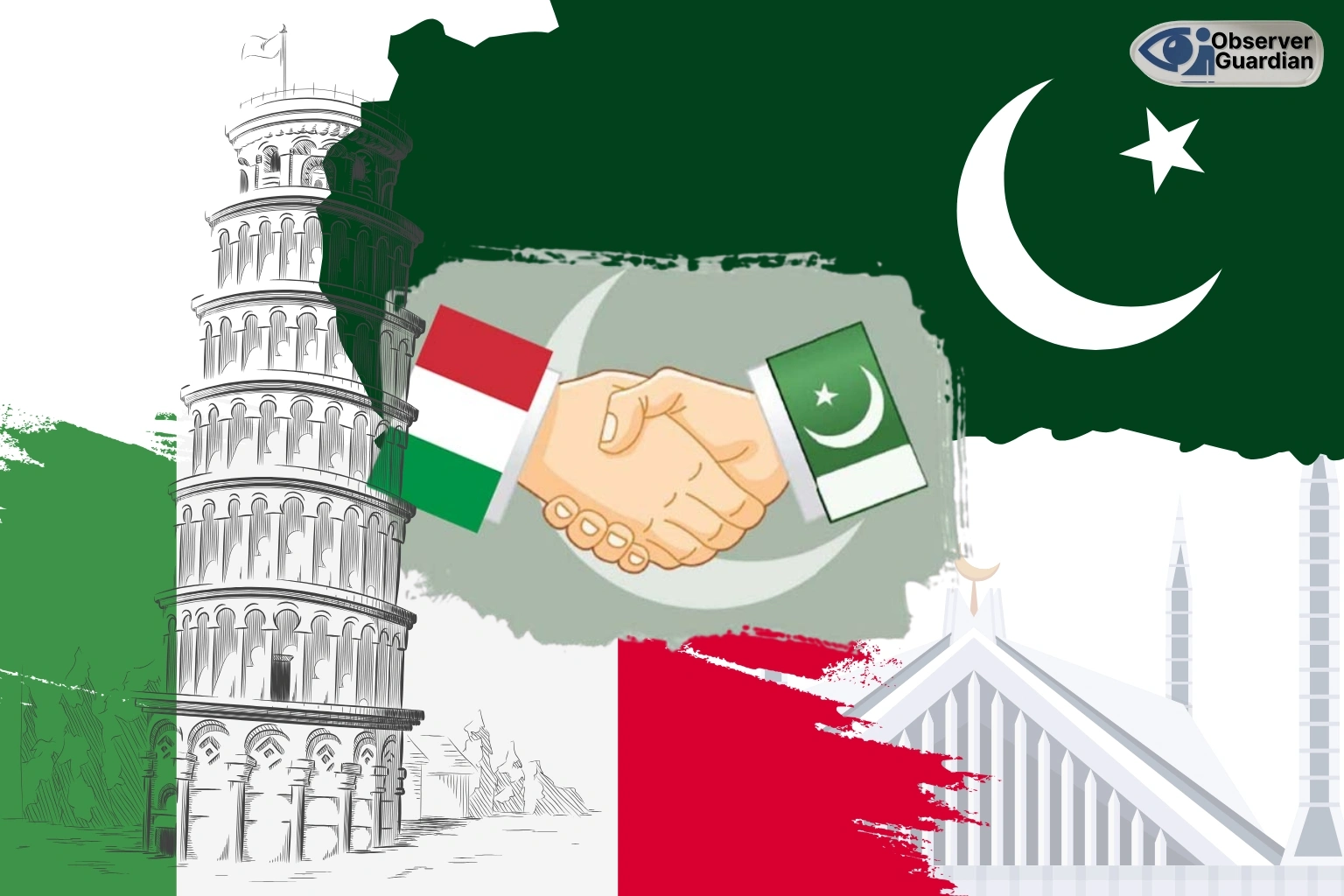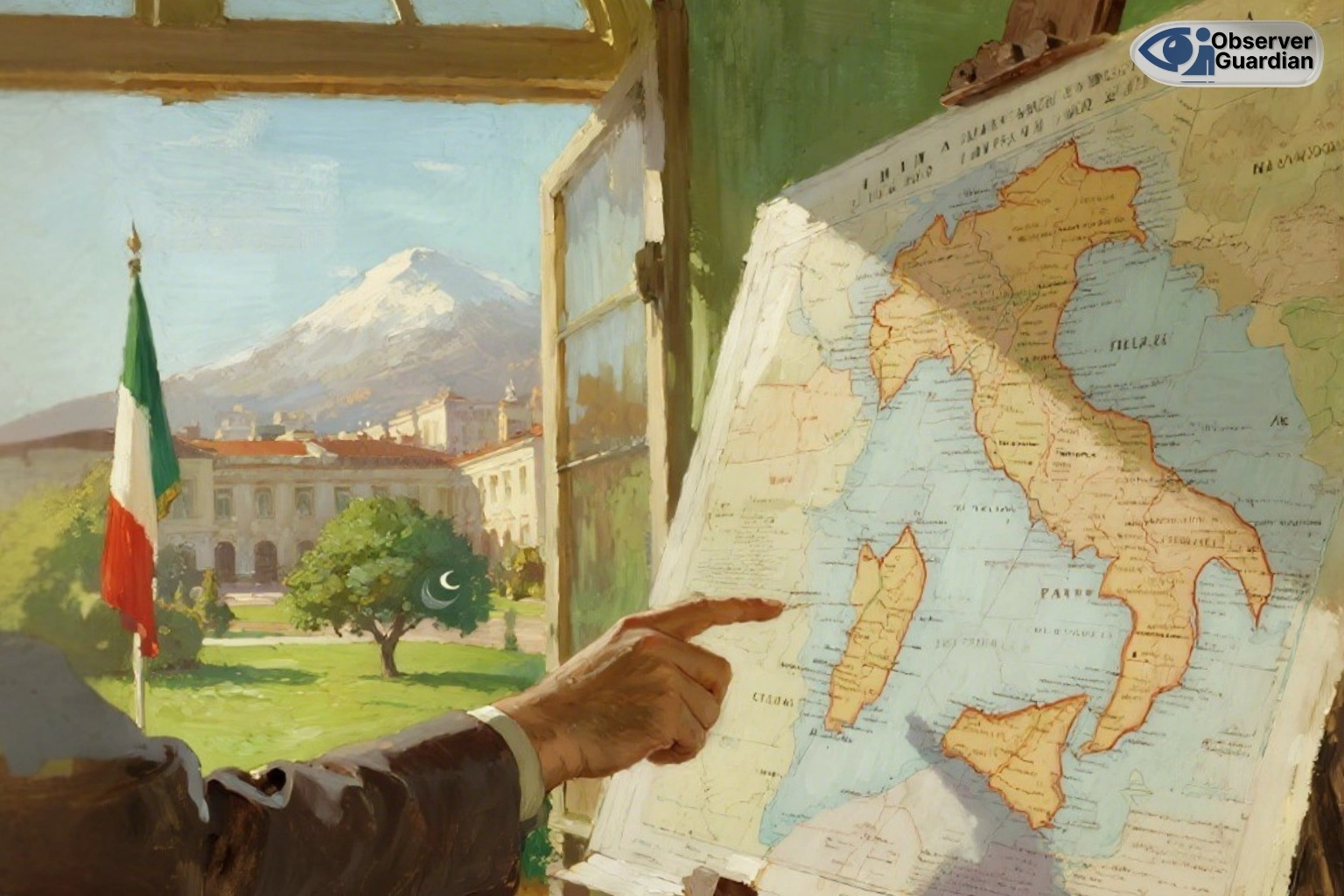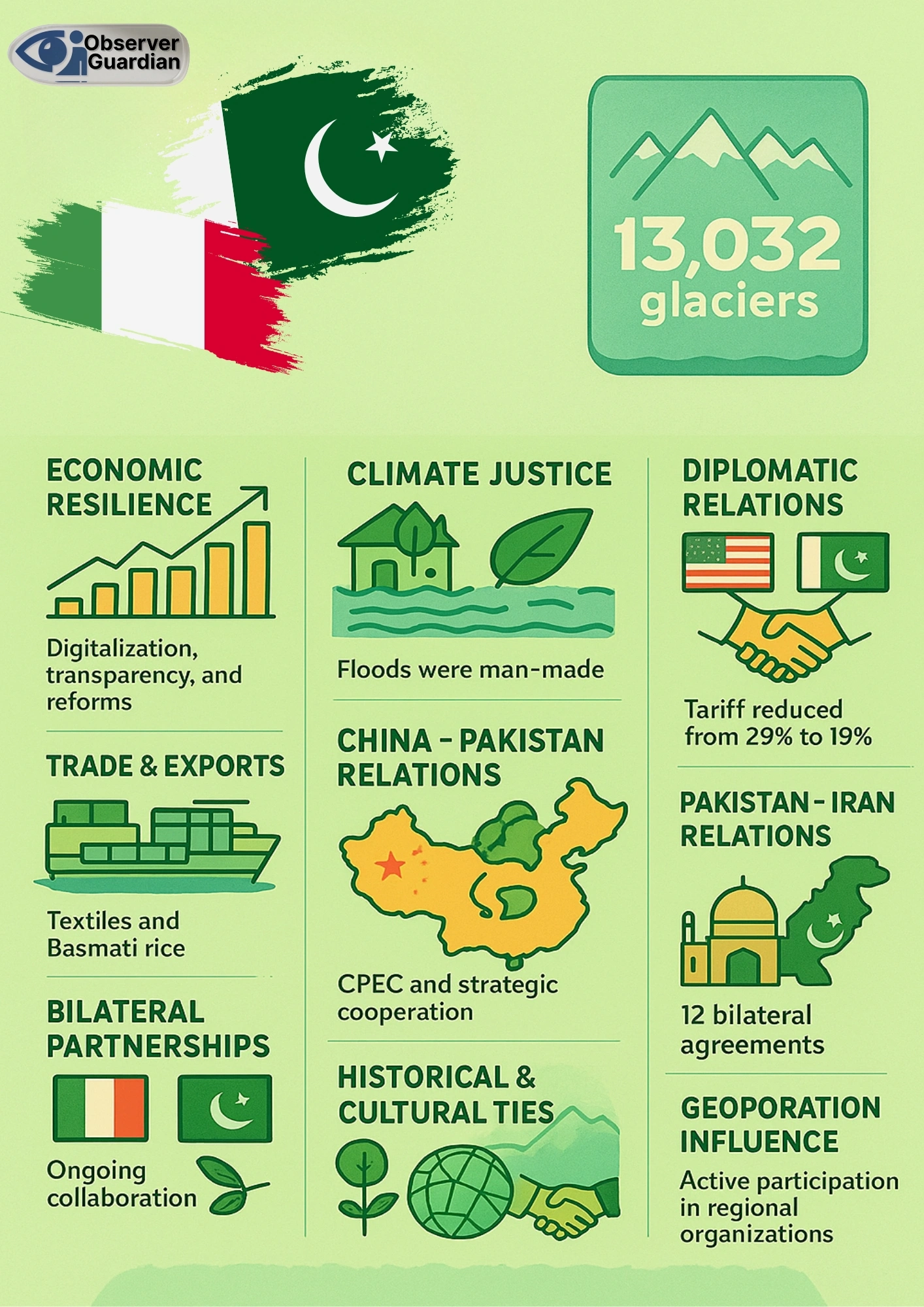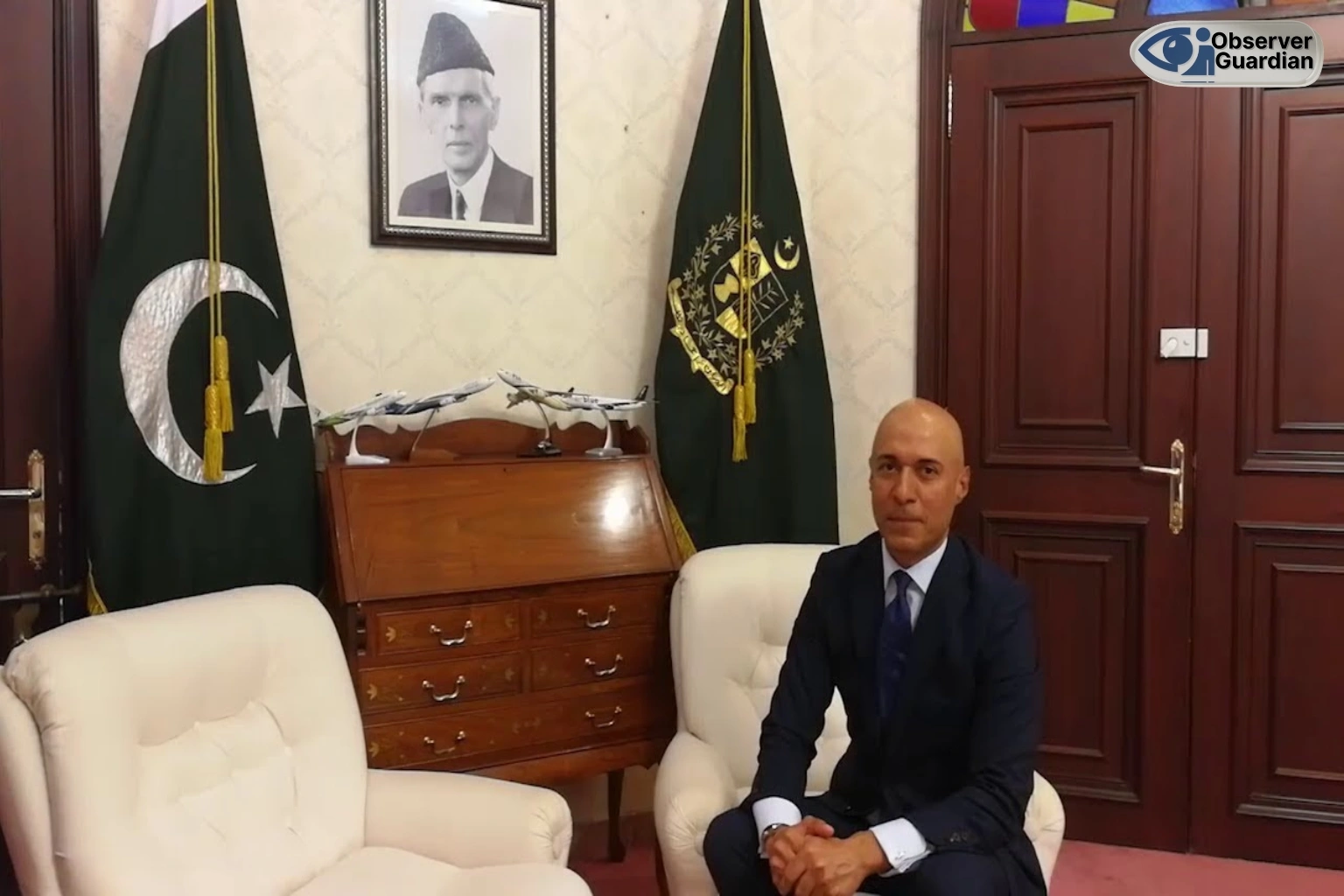On 13th August, International Scenarios came out with an interview of H.E Ambassador Ali Javed, the Pakistani envoy to Italy. The discussion illuminated on how Pakistan is increasingly becoming resilient to economic, environmental and geopolitical challenges. But at the same time, it is important to recognize the crucial role the country plays in building and strengthening international alliances. It is the story of determination, flexibility and a vision, especially of economic reforms and regional diplomacy in Pakistan.
Reform and Resilience Economic Recovery
Ambassador Javed dwelt on how Pakistan has overcome the economic turbulence by rebalancing its economy through strategic changes that involved digitalization and transparency. The controlling of inefficiencies through broadening the tax net has enabled the government to bring down the heat of inflation that has stabilized the domestic markets. In addition, the influx of the remittances through the overseas Pakistanis has made the economy even stronger echoing more faith in the government policies. The fact that people are mobilized to contribute taxes and in foreign remittance is evidence of the strength of the country and the trust of its diaspora.

Vulnerability and the Justice Appeal in Climate
Pakistan is disproportionately at risk of climate disasters although it contributes less than one percent to the global emissions of green gases.
Much attention was given to the disastrous floods by the Ambassador, who pointed out that these were not simply a sign of nature, but rather the consequences of manmade catastrophes with the unrealistic world activity as their catalyst.
The case of Pakistan shows the necessity of international solidarity in climate justice, to support countries with the weakest accountability to emissions with more means of adapting to climate change and mitigating climate change.
Diplomatic Equilibrium towards the United States
Pakistan has succeeded in easing tension with the United States in the diplomatic arena.
Ambassador Javed disclosed that the effect of the successful negotiations resulted in the cutting of tariffs down to 19 percent as opposed to the original 29 percent to avoid a devastating trade confrontation with its biggest export marketplace.
This trade-off is an indication of the pragmatic nature of the diplomacy of Pakistan to keep balance of national interests and at the same time keep constructive international relations.
Trade and Exports Expansion
Trade is the exchange of goods or services between two or more people of entities. It can take three forms, including barter, exchange and trade. Barter is the acquisition of goods or services in exchange of other services or articles with no money transfers incorporated in it.
Pakistan further strengthens itself in the international market through increasing the export of quality textiles and basmati rice. The sectors besides highlighting the traditional strengths of Pakistan also indicate its interest in being competitive in the global trade. Increasing demand in the foreign market indicates that the Pakistani products are more reliable and this further adds diversity to the exports of the country and increases bilateral economic relations.
Furthering the Ties with Italy
The Ambassador has emphasized the longstanding friendship between Pakistan and Italy based upon common accomplishments like the first ascent of K2. In modern times this cooperation in trade, culture and agricultural collaboration are flourishing with the most prominent displays of such interactive success being in the cultivation of the olive tree. Italy is an important European ally, and expats, exports, and remittances comprise an effective bond of credence and cooperation between both countries.

China Pakistan Partnership
Ambassador Javed reconfirmed that friendship with China is one of the most strategic relationships of Pakistan. China Pakistan Economic Corridor (CPEC) is the core of this collaboration in the aspects of boosting trade, infrastructure, and energy collaboration. Other than economic partnerships, regional security and diplomatic coordination are provided in this partnership. As far as Pakistan is concerned, its relationships with China are signposts of stability and prosperity in the future.
Engagement with Iran in the region
Drifting into the participation with Iran was through the signing of the twelve bilateral agreements between the countries, driven by interests that the countries shared in peaceful cooperation. Cultural and historical roots of this partnership are also demonstrated by symbolic actions, like the pilgrimage to the tomb of Allama Iqbal. Both countries have an affirmative stance of establishing a future defined by mutual respect and strategic partnership.
Security and regional Tensions with India
Discussions between the Ambassador did not avoid issues of regional security. In one of the recent clashes, the air force of Pakistan had proved its military preparedness in the shooting down of six Indian jets including three superior Rafales without consequences.
This incident proved that the defense of Pakistan was credible even though India had a higher military expenditure.
Pakistan, in the meantime, still insists on credible evidence of the allegations by India which prompted the standoff.
Regarding Kashmir, the Ambassador Javed restated the Pakistani position: the military occupation characterized by gross human rights violations and excessive numbers of troops to a civilian ratio. Pakistan continues to request the world community to respect the resolutions of UN Security Council which has directed the convening of a referendum to grant Kashmir people the right to self-government.
International Security Chips
This has not dampened the determination of Pakistan to deal with the fundamental causes of terrorism, although it has lost tens of thousands of lives to terrorist attacks. It has international commitment as it takes part in the peacekeeping missions of the United Nations. This is one of the ways through which Pakistan has played a responsible role as an international actor committed to international peace and stability.

Turkish & Azerbaijani Strategic Partnerships
Ambassador Javed highlighted positive ties between Pakistan, Turkey and Azerbaijan, basing the relationships on the same cultural heritage and mutual support. The need for cooperation in regional organizations has allowed these countries to ensure peace is promoted besides working to solve territorial disputes together. Regional hegemony and strong influence of Pakistan are ensured and established through organizations and platforms such as Economic Cooperation Organization (ECO) and Shanghai Cooperation Organization (SCO).
Tourism possibilities and Cultural Heritage
Other than politics and economy, Pakistan is a very historical and cultural country. The Ambassador explained its position as a place that is home to some of the oldest civilizations known to the world and that a visitor could discover archaeological treasures that date to thousands of years old. The natural beauty in Pakistan is also quite exceptional ranging between the 13,032 glaciers to the five peaks that exceed 8,000 meters. Pakistan has some of the best landscape to offer to adventure lovers and explorers. Since visa procedures have been greatly simplified and the people are very hospitable, Pakistan welcomes the world to feel its heritage and see its beautiful views.
The interview by Ambassador Ali Javed provides a complete view of Pakistan, a country strong in economic upturn, firm in diplomatic practicality, and proud of its cultural and natural inheritance. In negotiations of trade, climate activism, regional policies and peacekeeping in the world, Pakistan is playing a significant role in determining its existence.
Pakistan is today a land of aspirations as the Ambassador stressed out, a land that has come today with a story not just of survival but one of transformation, which is founded in reform, which is rooted in history, and which is world open.
Disclaimer: The views and opinions expressed in this article are exclusively those of the author and do not reflect the official stance, policies, or perspectives of the Platform.








